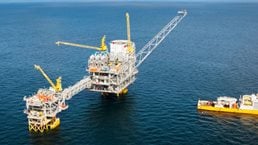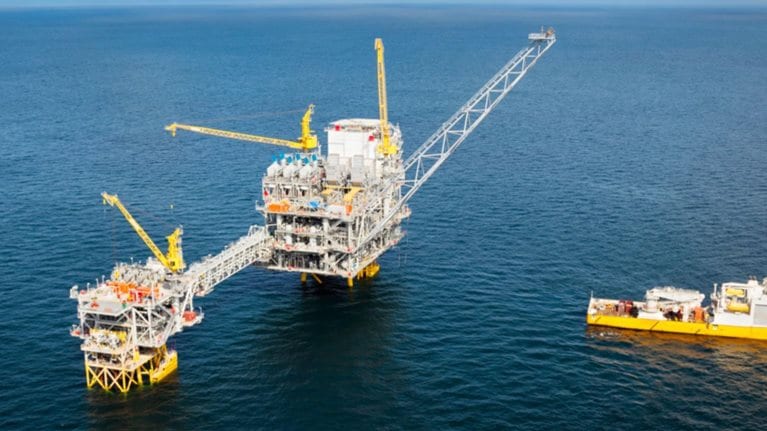Transforming a business that must reduce costs doesn’t always have to mean pain for employees—even if that business is a multinational energy company hit hard by dropping oil prices. In this interview, Eni CEO Claudio Descalzi speaks with McKinsey’s Rik Kirkland about navigating the oil and gas company amid drastic drops in oil prices, securing exploration successes, reinvesting capital gains, and driving a comprehensive culture change.
Transforming an oil and gas giant
I wanted to reduce costs without cutting head count, and I wanted to optimize the structure of the company. Reorganization was very useful, and we got about €800 million per year of cost reduction by just changing the organization and distributing resources in a different way. Those were the first steps.
Then we turned to the refinery. The refinery was exceeding capacity in Italy—which was also the case in Europe overall, but in Italy especially—by about 40, 50 million tons per year. So we shut down the one refinery that caused the big losses for the company, and the same thing was done for the chemical business.
I had to study, because I had to talk to and convince the people that we have to change. Not just culture in terms of costs, but culture in terms of technology, applications, and final output for the chemical and refinery businesses. It was an interesting and intense activity. I had to be involved personally because I had to convince my people—not just give an order or use a consultant—I had to work with them. That was a big three-year effort.
What’s the right amount of risk?
My main objective at the very beginning was to bring the cash neutrality from about $120 per barrel—which is very high, because if you have a cash neutrality at $120 per barrel and the price is $110, you lose $10 per barrel—so the issue was to go from $120 down to about $50 per barrel, where it is now.
I started in 2011, 2012. I called it dual exploration. What I thought to do, is say, “I take a high stake in the asset.” Between 70 percent and 100 percent. I take the risk. I go and select an asset with a low risk, but in a good place, as I told you, close to our facilities. Once I give value to this asset, I can sell at a very high value. Because I have big stake, I can sell at 30 percent, 40 percent, 50 percent.
I remain with the 40 percent; that is a typical stake to operate. And I operate, but I can’t anticipate the cash in. You can imagine when I started this, we start the exploration, then we develop. Before cashing in, you can wait for four, five, or six years, then you can cash in immediately. So you reduce your risk. You de-risk your position in the country. In the last three and a half years, we got €9.1 billion from exploration selling, with a capital gain of €8.1 billion, so a very high capital gain, that allowed us to reinvest. That is something that we started immediately.
Retraining to support a transformation
When you retrain, you have the opportunity to communicate, to explain not just what your employees are going to do—so you give them a drive, direction—but also what is happening in the company. Because we are a big company, and when you talk with the first line or the second line, they know what is happening.
Then you go down, down, down in the scale, and people don’t know. They are scared. They don’t understand. They receive very scary messages from outside, from the press, from the television, from the world. So you have to explain where you are going.

Reimagining supply-chain collaboration in a low-oil-price environment
The market for energy in Africa and beyond
We are the biggest exploration and production company in terms of equity production and research; we are in 15 countries. In Africa there is a lot to do in terms of access to energy, so we need to develop the African energy market. Consumption, it has to grow. But it is still at the very beginning, considering that it represents 15 percent of the worldwide population, which uses 3 percent, 4 percent of the worldwide energy. Europe is 7 percent, and consumption is at 12 percent, 13 percent. And Africa needs energy. Normally the model was different, so we’d find gas and oil and do exports. Africa has a lot of energy, but it doesn’t have access to energy. More than 650 million people don’t have access to electricity, so you cannot think that they can develop themselves. That is a wonderful market.
I don’t think that oil and gas is going to disappear because it’s not sustainable, as some argue. We cannot do differently, because when we talk about renewables and electrical cars, we talk about ourselves—we think about Europe, we think about the US, and we represent the US, Europe, Japan, New Zealand, and Australia, or 14 percent of the world population. Eighty-six percent are in a different kind of situation. They don’t have gasoline. They don’t have electricity. They don’t have power.
So they need oil and gas. They need renewables, clearly. They need a different energy mix.
The secret to staying balanced and resilient
First of all, it’s family. You must have a strong family. A strong family, wife, children, a situation where you can be comfortable and you know that you have them with you, and that is quite important.
And then passion. When there is passion, there is adrenaline, and you love what you are doing, you are never tired. When you love your people, you think that you have to talk to them because you have to convince them, they have to understand that you are with them, you are not tired.
I grew up in this company, so all my family’s here, because I have all my people; we grew up together, and we are still together. I started my 37th year in the company.
I’m really lucky, honestly. And I thank God that I have this lucky life.


